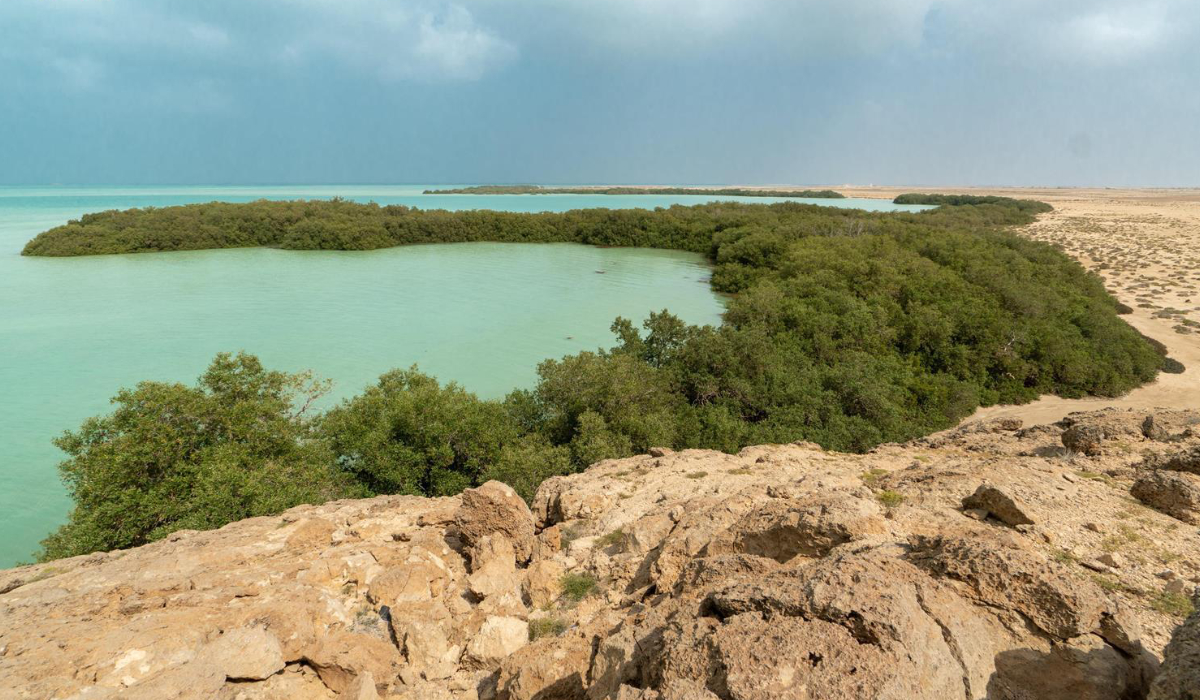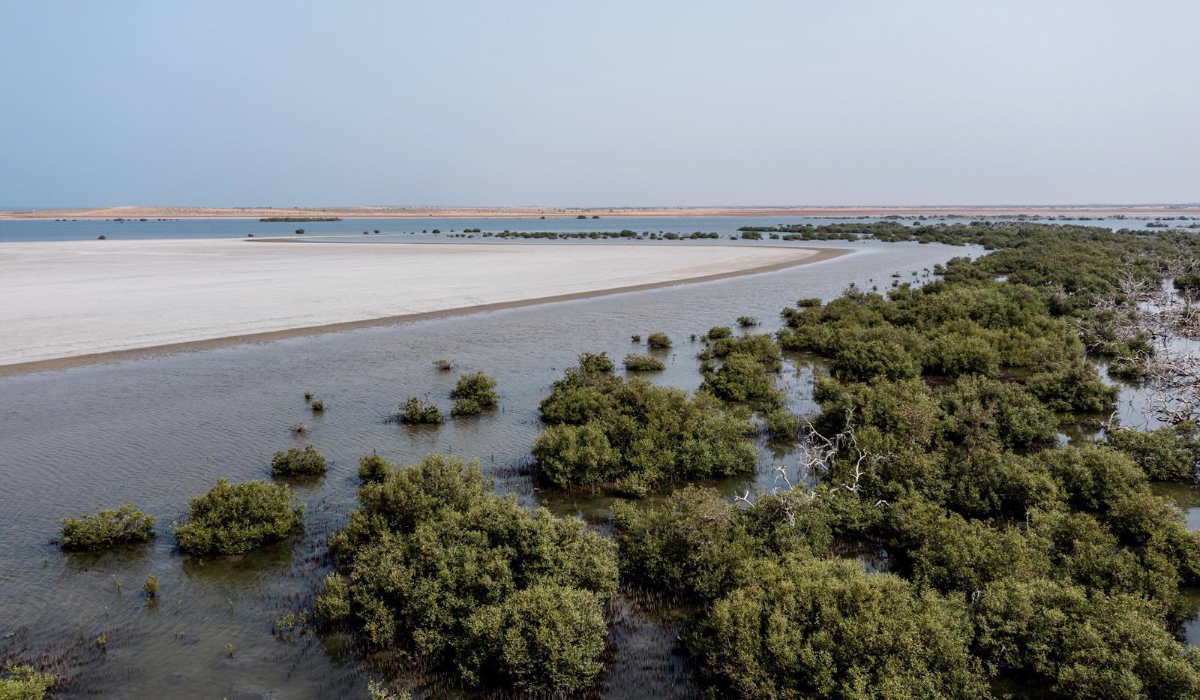https://arab.news/2aa6w
- An RSG spokesman said mangrove trees were powerful tools for carbon removal as they were able to absorb five to ten times more of the element than other plants
RIYADH: Saudi Arabia’s Ministry of Environment, Water and Agriculture and the National Center for Vegetation Cover Development and Combating Desertification are increasing their efforts to protect the Kingdom’s mangrove forests.
Mangrove forests are one of the planet’s most stunning and remarkable natural ecosystems, yet the trees occupy only 0.5 percent of the global coastal areas. Pollution from construction and manufacturing, shrimp farming and urban expansion have led to their destruction and a decline in their numbers, Saudi Press Agency has reported.

Mangrove forests are one of the planet’s most stunning and remarkable natural ecosystems, yet the trees occupy only 0.5 percent of the global coastal areas. (SPA)
Mangrove forests are crucial for safeguarding beaches from erosion, purifying water from pollutants and storing carbon, helping mitigate climate change. They are also a vital habitat for marine and wildlife and provide economic and social advantages.
Now, the ministry and center are carrying out a number of initiatives at both regional and international level to protect them. These include cultivating mangroves along the Red Sea and Arabian Gulf coastlines, in line with the goals of the Saudi Green Initiative. Research is also being conducted to address the challenges of mangrove restoration in harsh environments.

Mangrove forests are one of the planet’s most stunning and remarkable natural ecosystems, yet the trees occupy only 0.5 percent of the global coastal areas. (SPA)
The center has committed to protecting and growing mangrove forests and has initiated multiple development projects along the Kingdom’s coasts in collaboration with public, private and non-profit partners. It is currently planting 13 million mangrove trees as part of the national target of 100 million by 2030. It is also working to raise awareness among local communities about their significance and educate them on preservation methods.
Recently, more than 100 volunteers joined a mangrove planting event held to mark the International Day for the Conservation of the Mangrove Ecosystem.
Mangrove forests are one of the planet’s most stunning and remarkable natural ecosystems, yet the trees occupy only 0.5 percent of the global coastal areas. (SPA)
The session was hosted by Saudi develop Red Sea Global and was also attended by representatives from the ministry and students from the Red Sea Global English for Tourism program.
An RSG spokesman said mangrove trees were powerful tools for carbon removal as they were able to absorb five to ten times more of the element than other plants.
Mangrove forests are one of the planet’s most stunning and remarkable natural ecosystems, yet the trees occupy only 0.5 percent of the global coastal areas. (SPA)
“Establishing a sustainable mangrove ecosystem is crucial to RSG’s commitment to safeguarding and enriching the natural environment of their destinations,” said Raed Albasseet, group chief environment and sustainability officer at RSG.
After opening the Red Sea Mangrove Nursery last year, the company has transplanted a million seedlings to date and expects to grow 2 million more this year.
This latest initiative is part of a larger-scale program, “From People to Planet,” where members of the local community, RSG partners and visitors to the Red Sea destination can take part in future planting initiatives.

